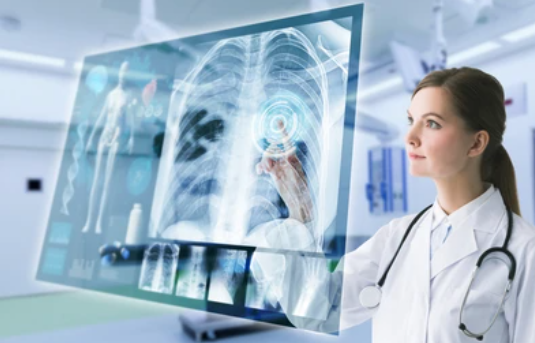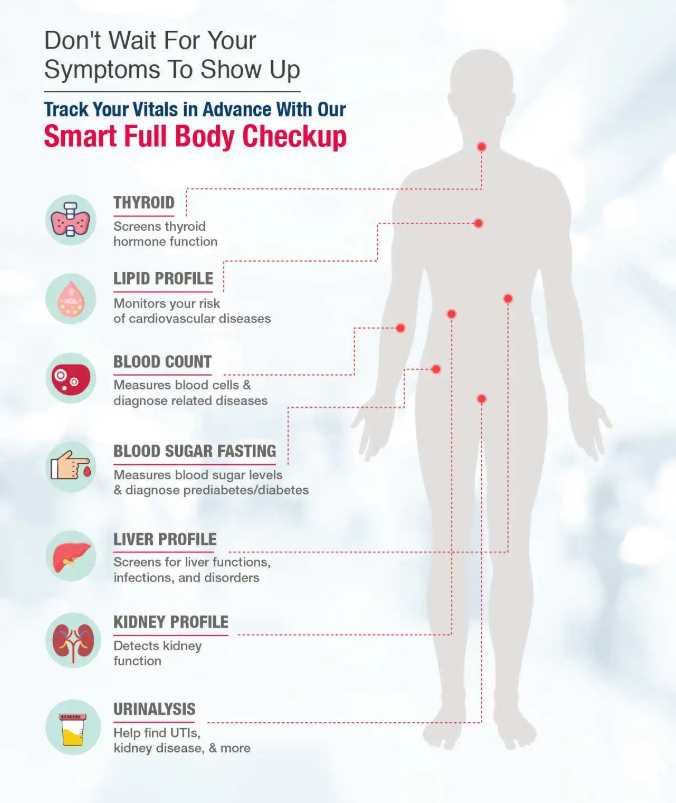AI and Automation
The Future of Healthcare
Why use AI
How AI Enhances Health Screenings
AI improves health screenings by offering faster, more accurate diagnostics, analyzing medical images like X-rays and MRIs to detect abnormalities that humans might miss. It helps identify conditions like cancer and fractures earlier, enabling better treatment.
AI also uses predictive analytics to assess future health risks based on medical history, lifestyle, and genetics, allowing healthcare providers to tailor preventive care and improve patient outcomes.
Image Analysis with AI
AI-powered image analysis uses deep learning to detect subtle abnormalities in X-rays, MRIs, and CT scans, recognizing patterns linked to conditions like cancer and fractures for earlier detection and treatment.
Pattern Recognition
AI-powered image analysis uses deep learning to detect subtle abnormalities in X-rays, MRIs, and CT scans, recognizing patterns linked to diseases for earlier detection and treatment.
Predictive Analytics for Early Detection
AI-driven predictive analytics evaluates past medical data to forecast future health risks, enabling personalized care plans and preventive measures based on age, lifestyle, and genetics.
Automated Devices for Health Check-Ups
01
Smart Diagnostic Tools
Automated diagnostic tools like blood pressure monitors and glucometers are becoming commonplace in health screenings. These devices use sensors and AI algorithms to measure vital health metrics with high precision, providing accurate readings without human error. The ease of use and portability of these tools allow patients to monitor their health from home and share results with their healthcare providers for ongoing care.
02
Wearable Devices
Wearable devices, such as smartwatches and fitness trackers, have become essential tools in modern health management. These devices continuously monitor vital signs like heart rate, blood oxygen levels, and physical activity. They can alert users to irregularities, such as elevated heart rates or low oxygen levels, prompting early intervention and fostering a proactive approach to health.
03
Automated Imaging Systems
Automated imaging systems are transforming health screenings by allowing full-body scans that identify potential health risks early. These systems, such as CT scanners and MRI machines, are equipped with AI technology to interpret results instantly. This technology not only speeds up the diagnostic process but also helps detect underlying conditions that may not show symptoms until they are advanced.
Day care membership offer
Schedule and tuition
01
Improved Accuracy with AI
AI-driven health screenings reduce human error by identifying even the smallest abnormalities through algorithms trained on vast medical data. This leads to higher diagnostic accuracy and ensures early detection of treatable conditions.
02
Faster Results with Automation
AI in healthcare speeds up data processing by analyzing results in real-time, offering immediate feedback. This quick turnaround helps healthcare providers make faster decisions, especially in urgent situations, ensuring timely treatment.
03
Personalized Healthcare with AI
AI personalizes healthcare by using data from wearables and diagnostic tools to tailor health screening results. It creates customized reports that highlight individual risks and offer prevention strategies for more effective care plans.
The integration of AI and automation in health screenings enhances accuracy, speeds up results, and personalizes care, enabling earlier disease detection and better treatment outcomes.





